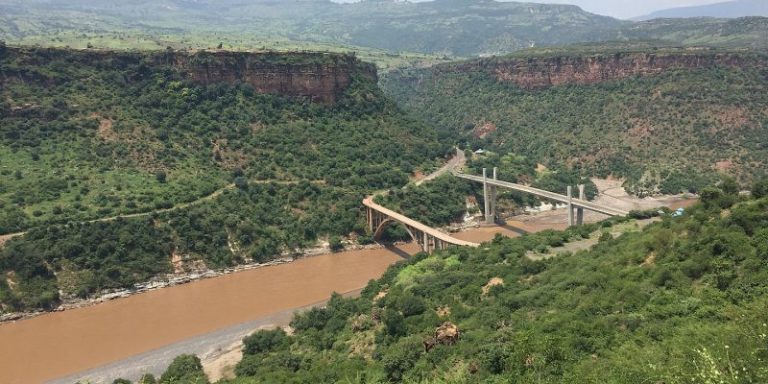INTELBRIEF
July 8, 2020
IntelBrief: Can Diplomacy Solve Escalating Tensions over Ethiopia’s Dam Project?

- Tensions have escalated between Ethiopia on one side, and Sudan and Egypt on the other, as Addis Ababa prepares to move forward with its plan to develop a hydroelectric dam on a branch of the Nile River.
- Egypt and Sudan have portrayed the dam as an existential threat and have spoken publicly about the risk to their citizens if the project proceeds without safeguards and additional agreements in place.
- The dispute has been elevated to the United Nations Security Council and Egypt has also appealed to numerous regional bodies.
- Rising temperatures could contribute to increased water scarcity among more than a third of people living along the Nile River by 2040, according to some projections.
Scholars who study conflict predict that in the future, wars will be fought over access to scarce resources, an issue certain to be exacerbated by climate change and shifting migratory patterns. But these conflicts are already happening. In some cases, conflict can be avoided with international diplomacy and mediation in the nascent stages, before tensions escalate. A current case study playing out in real time is what is happening in Ethiopia, as Addis Ababa prepares to move forward with its plan to develop a hydroelectric dam on a branch of the Nile River. The Grand Ethiopian Renaissance Dam is a $4.8 billion project set to move forward this month with a completion target date of 2022. If it moves forward, it will be the world’s seventh largest dam and the biggest hydroelectric facility on the African continent.
Egypt contends that Ethiopia’s actions will severely jeopardize access to water for tens of millions of its citizens. Egypt is not the only country impacted—Sudan, too, alleges that it will be negatively affected by Ethiopia’s plans and Khartoum has joined Cairo in opposition to certain aspects of the project. For its part, Ethiopia believes the dam is necessary to bring electricity to approximately 65 million Ethiopians, according to the Wall Street Journal, especially those living in the more rural areas of the country. Egypt and Sudan have portrayed the dam as an existential threat, hinted at more forceful action, and have spoken publicly about the risk to their citizens if the project proceeds without safeguards and additional agreements in place. As climate change impacts different countries to varying degrees, there is major uncertainty surrounding access to water and the cascading effects that droughts could have in the future, with implications for famine and food security.
The dispute has been elevated to the United Nations Security Council and Egypt has also appealed to numerous regional bodies, including the African Union (AU), and individual states throughout Africa, the Middle East, and Europe. UN diplomats in New York, including the United States Ambassador to the United Nations, Kelly Craft, are pushing all sides involved to resolve the dispute diplomatically. U.S.-mediated talks broke down in February, but more recently, South Africa, the current chair of the AU, has taken the lead in mediation efforts. UN Secretary General Antonio Guterres has promised to work with Sudan’s Prime Minister to assuage Khartoum’s major concerns. Previous diplomatic overtures have helped forge consensus on a range of important issues related to the dam, but progress has stalled over specific policies to address droughts, as well as mechanisms related to dispute resolution.
Rising temperatures could contribute to increased water scarcity among more than a third of people living along the Nile River by 2040, according to some projections. As climate change continues unabated, a lack of access to potable water, more frequent and longer lasting droughts, and a range of other climate-related human security challenges will increase the probability of both interstate and intrastate conflict. Given the inability of the international community to work together to combat the spread of the coronavirus pandemic, there is little hope that a globally coordinated effort to stem the devastating effects of climate change is even a remote possibility. When countries like the United States abdicate global leadership on issues like climate change, the chances for workable solutions are even further diminished. International diplomacy may very well solve the ongoing dispute between Egypt, Sudan, and Ethiopia. Yet, if similar disagreements become more commonplace in the future—further complicated by climate change, famine, and energy insecurity—it will likely lead to creeping instability and worse, including prolonged regional conflict.
.
For tailored research and analysis, please contact: info@thesoufancenter.org